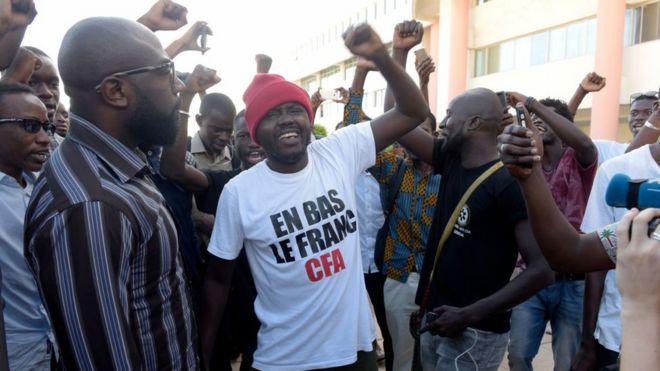 AFP
AFP
A controversial Franco-Beninese activist who was charged over burning a 5,000 CFA note has been acquitted by a court in the Senegalese capital, Dakar.
Kemi Seba was arrested last week following a complaint by the Central Bank of West African States (BCEAO).
The CFA is a colonial-era currency that is still used in several former French colonies in Africa.
Mr Seba is among many activists calling for the CFA to be abandoned, saying it is a relic of French colonialism.
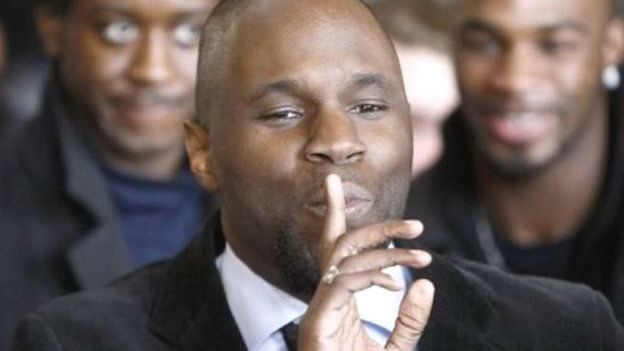 AFP
AFP
On Friday 25 August police officers descended on a residence in Dakar with an arrest warrant for probably one of the most controversial black activists in the Francophone world.
A week earlier, at a demonstration, Kemi Seba, whose real name is Stellio Gilles Robert Capochichi, in a symbolic public protest against the CFA, burnt a 5,000 CFA bank note.
The CFA is used in 12 francophone African countries as well as Guinea Bissau and Equatorial Guinea.
The BCEAO, which prints the notes for West Africa, took issue with the public destruction of what it considered its property.
The bank sought court action and Mr Seba was arrested on the charge of destroying property, which could have landed him in jail for up to five years if he were found guilty.
The AFP news agency reports that he was acquitted on a technicality. Senegal's penal code punishes the destruction of banknotes rather than a single bank note.
Mr Seba is part of a growing movement chorus calling for the CFA to be dropped.
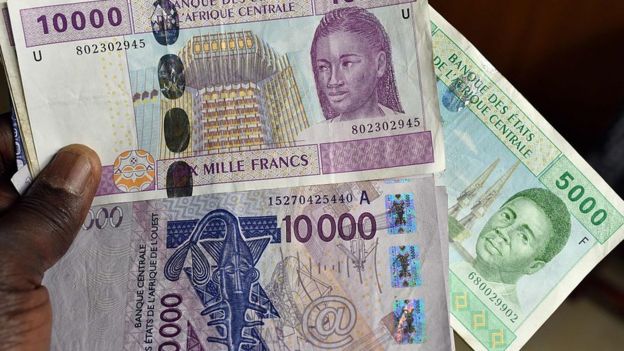 GETTY IMAGES
GETTY IMAGESWho is Kemi Seba?
Mr Seba is a self-styled "Afrocentrist" who was notorious in France for founding a radical black segregationist movement he called Tribu Ka.
He is driven by a belief system - known as kemitism - that is based on legends about ancient Egypt; a belief system which proclaims the supremacy of the black race.
The controversial activist was influenced by the Nation of Islam (NOI), the black nationalist movement founded in the 1930s in the United States.
As a young man, he travelled to the US where he handed out fliers for NOI and listened to fiery sermons by members of the organisation that once had Malcolm X as a prominent figure.
Back in France, he became an ambassador for NOI and later created Tribu Ka.
His activism and rhetoric led to brushes with the law and he was regularly arrested by the police for inciting hatred.
Popular outrage against Mr Seba prompted then-president Jacques Chirac to disband Tribu Ka using a presidential decree.
Mr Seba re-launched his movement under a new name - Generation Kemi Seba - and with mounting pressure both from civil society activists and law enforcement, he fled France for Senegal.
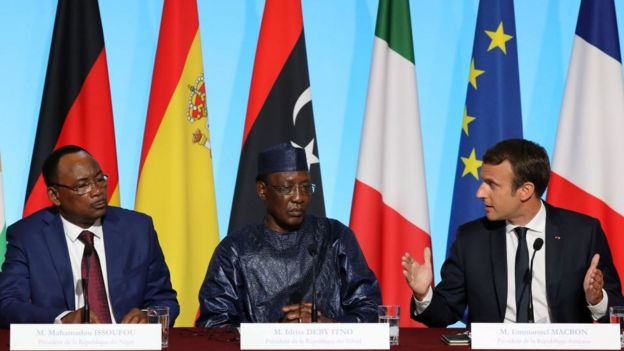 AFP
AFPWhat is the CFA?
The CFA franc was created by France in the late 1940s to serve as a legal tender in its then-African colonies, and it is one of the most prominent signs of France's continued influence over its former colonies.
The CFA franc is pegged to the euro with the financial backing of the French treasury.
While some see it as a guarantee of financial stability, others attack it as a colonial relic.
What are the arguments for and against the currency?
Proponents argue it shields the 14 countries using it from inflation and uncertainty, pointing at neighbouring Guinea as an example of what may happen if the CFA is dropped.
Guinea is a rare former French colony in Africa which has its own currency. But it regularly faces currency shortages and its central bank struggles to ensure its stability.
However, critics, such as those leading the anti-CFA movement, say true economic development for the 14 African countries can only be achieved if they get rid of the currency.
They argue that in exchange for the guarantees provided by the French treasury, African countries channel more money to France than they receive in aid.
They also argue that they have no say in deciding key monetary policies agreed to by European countries, which are members of the Eurozone.
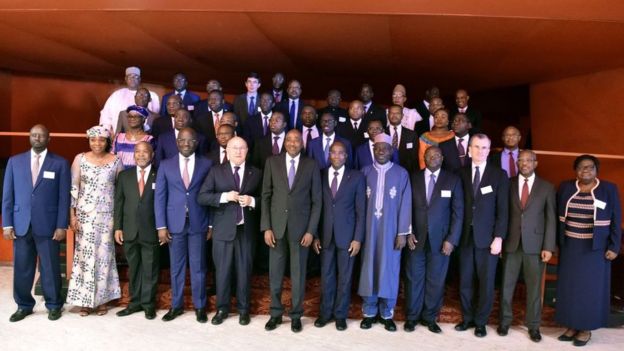 AFP
AFPWhy are people unhappy about the CFA?
Mr Seba might have been harbouring an agenda of his own when he turned up at the rally and torched the bank note.
However, for most of the young people who attended the protest, his act was a legitimate sign of defiance against a currency they consider as a symbol of the economic and financial domination by France of the countries sharing it.
As one young protester told local media, the act of torching of the note was like when Nelson Mandela, the anti-apartheid leader, burnt his pass book in protest against Apartheid laws.
But the anger is not just directed at France; it also directed towards African leaders who activists accuse of being complicit with France.
Most pro-democracy youth movements in West Africa, such as Y'en a Mare in Senegal and le Balai Citiyen in Burkina Faso, have made the scrapping of the CFA a key plank in their campaigns.
Those movements believe that the end of the CFA will effectively end France's strong influence over their countries.
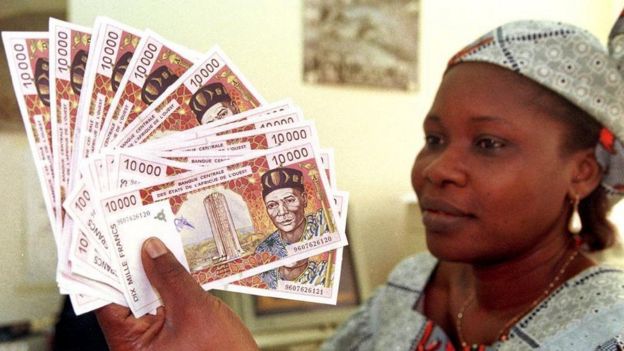 GETTY IMAGES
GETTY IMAGESWhat is France saying?
Officials in France have remained quiet over the anti-CFA movement, probably because any response would only serve to further incense the activists.
France is in a delicate position. Anything coming from Paris in defence of the CFA could be viewed as proof of France's vested interest in keeping the colonial-era currency.
At any rate, no French president before Emmanuel Macron had ever expressed a willingness to let go of the CFA.
However Mr Macron said, while campaigning to become president, that the decision to move away from the currency was for African countries to make.
No African leaders in the 14 countries affected by the issue has publicly responded to Mr Macron's comment.
Source: BBCNews

No comments:
Post a Comment
Add a Comment...